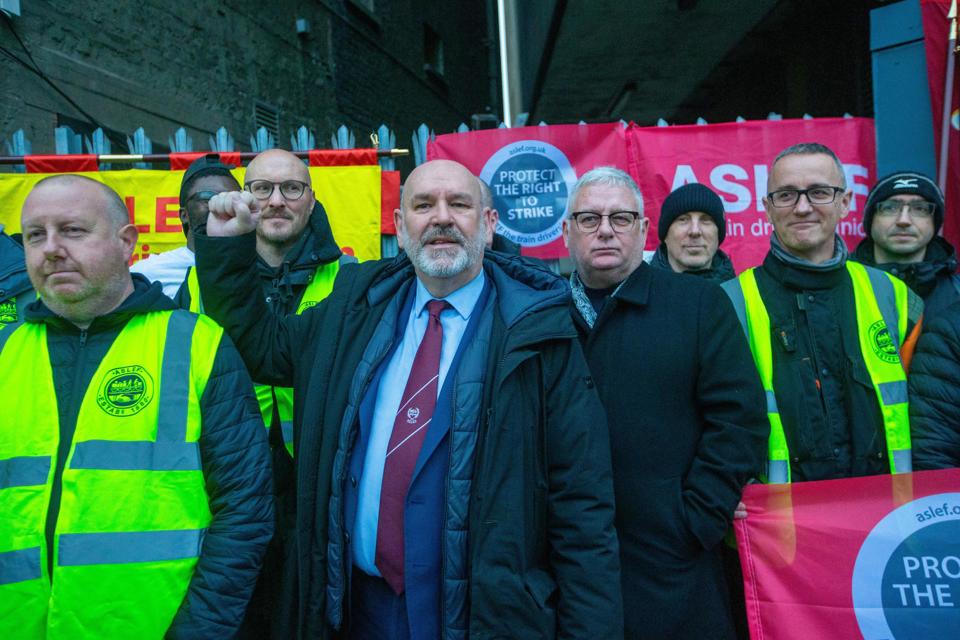Resolving the two-year ASLEF pay dispute will be high on the agenda for the new government.
The drivers’ union has held 16 one-day strikes since July 30 2022, and has withdrawn rest day working (voluntary overtime) on 11 different blocks of dates since May 2023. Further industrial action was put on hold when the General Election was called, pending the appointment of a new Transport Secretary.
Resolving the two-year ASLEF pay dispute will be high on the agenda for the new government.
The drivers’ union has held 16 one-day strikes since July 30 2022, and has withdrawn rest day working (voluntary overtime) on 11 different blocks of dates since May 2023. Further industrial action was put on hold when the General Election was called, pending the appointment of a new Transport Secretary.
ASLEF has been in dispute with the 14 train operators in England controlled by the Department for Transport since May 2022.
Its most recent action was five days of strikes and an overtime ban spread over six days from May 6-11.
It is seeking a straightforward ‘no strings’ pay rise that recognises the “significant cost of living increases” since the last pay rise in 2019.
In April 2023, ASLEF rejected what the Rail Delivery Group (RDG) called “a fair and affordable offer” that would take average driver base salaries for a four-day week (without overtime) from £60,000 to nearly £65,000.
At the time, ASLEF General Secretary Mick Whelan called the offer “risible”, describing it as a “land grab for all the terms and conditions we have negotiated over the years”. Since then, the RDG has refused to take part in talks or make an improved offer.
Also brewing is a potential dispute between government-owned Network Rail and the RMT union over pay.
In April, the RMT rejected a 3.5% pay offer for 2024 from NR, claiming that “it has always been the case that pay offers have been based on RPI for November the previous year: RPI was 5.3% in November 2023”.
RMT General Secretary Mick Lynch then wrote to NR “seeking fresh negotiations and for the company to table an improved offer”.
RAIL understands that talks could resume over a pay deal between RMT and the new government this week (10 July) but there has been no confirmation as of yet form either the government or RMT.
Although the rail union TSSA has two current railway disputes under way, RAIL has been unable to contact the union for an update as its head office staff (represented by the GMB union) are currently staging a 15-day strike.
This is over the alleged failure of the union’s new General Secretary Maryam Eslamdoust to implement workplace bullying reforms set out in the Kennedy report.
Talks at ACAS had broken down as the latest issue of RAIL went to press (3 July)
Login to continue reading
Or register with RAIL to keep up-to-date with the latest news, insight and opinion.



















Login to comment
Comments
No comments have been made yet.